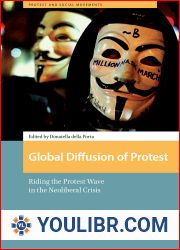
BOOKS - Authoritarianism in Syria: Institutions and Social Conflict, 1946-1970


US $5.75

689948

689948
Authoritarianism in Syria: Institutions and Social Conflict, 1946-1970
Author: Steven Heydemann
Year: 2018
Format: PDF
File size: PDF 25 MB
Language: English
Year: 2018
Format: PDF
File size: PDF 25 MB
Language: English
For almost forty years Syria has been ruled by a populist authoritarian regime under the Ba th Party, led since 1970 by President Hafiz al-Asad. The durability and resilience of this regime is a striking contrast to the instability and intense social conflict that preceded the Bath s seizure of power, when Syria was seen as among the least stable of Arab states. This dramatic transition raises questions about how the Ba th succeeded in constructing the institutions needed to consolidate a radically populist and authoritarian system of rule. The Ba th s accomplishment also poses a significant theoretical challenge to the widely held view that populist strategies of state building are inherently unstable.Drawing on evidence from Syrian, American, and British archives as well as from published French and Arabic sources, Steven Heydemann explains the capacity of the Ba th to overcome the obstacles that typically undermine the consolidation of radical populist regimes. He links the Ba th s adoption of a radical populist strategy of state building, and its capacity to implement this strategy, to the dynamics of social conflict, state expansion, and structural change in the political economy of post-independence Syria. Arguing that conventional accounts of Syrian politics neglect the centrality of institutions and institutional change, Heydemann shows how shifts in the pattern of state intervention after 1946 transformed Syria s political arena.














































